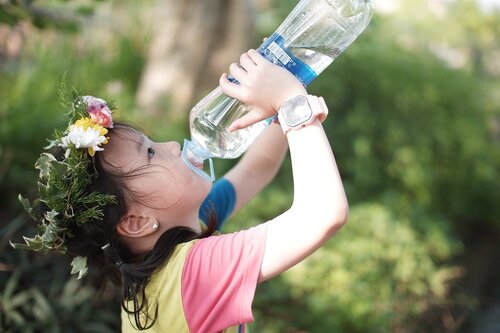Water is a valuable resource that should be used wisely, particularly in big events such concerts, celebrations, and meetings. For catering, sanitation, and guest hydration—as well as for other events—these may call for large volumes of water. Using creative technology can help organizers greatly cut water use and support sustainability. Using services like bottled water delivery guarantees effective distribution without extra waste, so one strategy becoming popular is This paper investigates innovative methods that reduce water waste at events, therefore opening the path for more environmentally friendly and resource-wise friendly events.
Smart water monitoring systems
Smart water monitoring technologies are transforming the way big events’ water is handled. These systems measure water use throughout several sections of the event site using sensors and real-time data analytics. Organizers can cut needless water waste right away by spotting areas of excessive use or leakage. Furthermore offering comprehensive statistics on water use trends, smart water meters enable event planners to make wise decisions for next events. This proactive strategy guarantees effective usage of water without sacrificing guest demands.
Green Sanitation Solutions
Large-scale events’ water use is largely influenced by sanitation amenities like hand washing stations and toilets. In these places, creative technology like low-flow toilets and waterless urinals may drastically save water usage. Motion-activated faucets and scheduled water flow devices help hand washing stations guarantee that water is utilized just as needed. Certain events have even begun employing portable, composting toilets that provide a sustainable waste management solution yet need little to no water. These green choices not only help to save water but also fit the rising need for ecologically responsible methods at public events.
Rainwater Reuse and Harvesting Systems
Another great approach to cut water usage for outdoor activities is rainwater collecting systems. Rainwater collected and stored by these systems may later be utilized non-potable for gardening, cleaning, or even cooling systems. Further purification of collected rainwater made possible by advanced filtering technology qualifies the water for more general use. Rainwater collecting should be included into event design to help to create a self-sustaining water cycle and lessen dependency on municipal water sources. Events organized in areas prone to water shortage especially benefit from this strategy.
Ecological Cooking Methods
Another sector where creative solutions could assist to cut water waste is catering. For instance, biodegradable dinnerware and water-efficient dishwashing systems help to cut the water needed for disposal and cleaning. Some events now employ closed-loop water recycling systems in kitchens, where wastewater from dishwashing is purified and then used for non-drinking needs. When used sensibly, bottled water delivery services can help to further simplify hydration choices without adding to waste or excessive water use.
Modern Water Stations
Any event should have hydration stations as they guarantee that participants remain fresh all through the event. By tracking water use in real time, these stations not only help to avoid overuse but also offer important information about attendee hydration needs. Furthermore, some stations are made to clean and cool tap water, therefore negating the need for prepared choices. For big events, these stations provide a handy and environmentally beneficial mix of technology and sustainability.
Reducing water waste at big events calls for creative design and advanced technologies. Minimizing water usage depends much on smart water monitoring, environmentally friendly sanitation, rainwater collecting, and sustainable catering methods. Public participation campaigns and advanced hydration stations help to improve water usage sustainability and efficiency even further. Strategic integration of services like bottled water delivery guarantees meeting of hydration requirements without needless waste. Event planners have a special chance to lead the way in sustainable water management as these technologies becoming increasingly available, therefore helping the earth as well as their guests.
